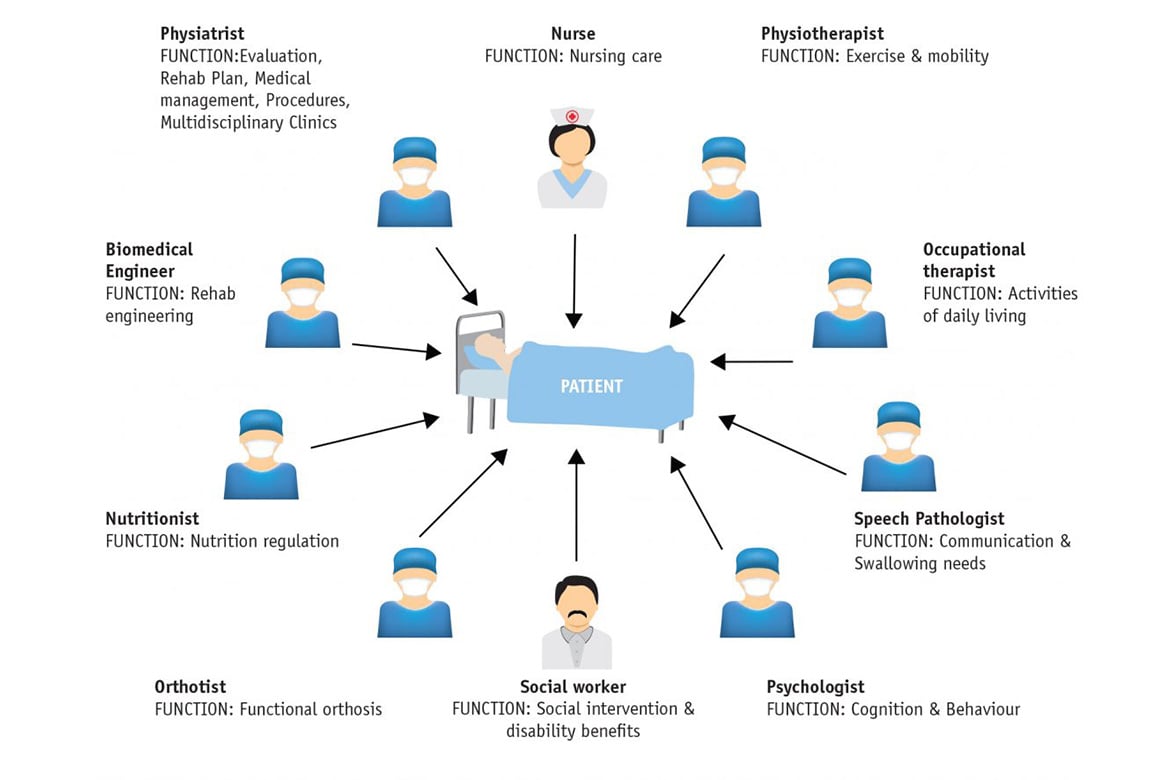Effective teamwork plays a crucial role in Physical and Rehabilitation Medicine (PRM), as it helps to get a holistic view of how every patient is being cared for and, therefore, produces better results
The key to successful rehabilitation is the initial assessment of the patient by a collaborative interdisciplinary team that includes physical, occupational, and speech-language therapists who are focused on recovery, goals and expectations of both the patient and his/her family
Once in our care, the assessments are detailed to the point of including whether they drove a car, used any assistive devices or equipment, or required any assistance prior to the disabling event. In addition, our team gains a thorough understanding about household structural barriers such as stairs and flooring and an update on the existing social support network for the patient.
At the end of this process, a collaborative effort is made to develop a personalised rehabilitation plan that includes exercise/treatment/therapy for each patient—before prioritising the process, it links the patient’s functional impairments to attainable goals.
Rehabilitation is driven by a combination of factors, including how the team reacts to a patient’s progress, pain, the patient’s preferences, possible medical complications, and the patient’s response to certain rehabilitation techniques.
Every morning, our interdisciplinary team—with the physician, nurses, and the therapist—reviews the patient’s progress as against the targets. When planning patient care, our team members consult with each other to determine best transfer methods, family training techniques, and strategies that are most efficient and need based. In addition, we organise weekly patient care conferences where we discuss each patient’s progress, discharge plans, and other related issues.
Only two multidisciplinary rehabilitation departments are available in Mumbai—one of them being at KDAH
Inpatient rehabilitation services are known to be the most benefi cial for patients with stroke, moderate to severe brain injuries—including traumatic etiologies, spinal cord injury and disease—rheumatoid arthritis and for older adults. Post-acute inpatient rehabilitation stroke units, compared with general ward care or non-specialised services, are associated with signifi cant clinical improvements in functional ability, institutionalisation, and quality of life.
KDAH has incorporated all these principles and has established an inpatient rehabilitation service for the fi rst time in India with 14 dedicated beds. To achieve optimal outcomes, we have a dedicated team across all the different disciplines. The aim is to achieve increased independence, a shortened length of hospital stay and an overall improved quality of life.
 Back to Site
Back to Site